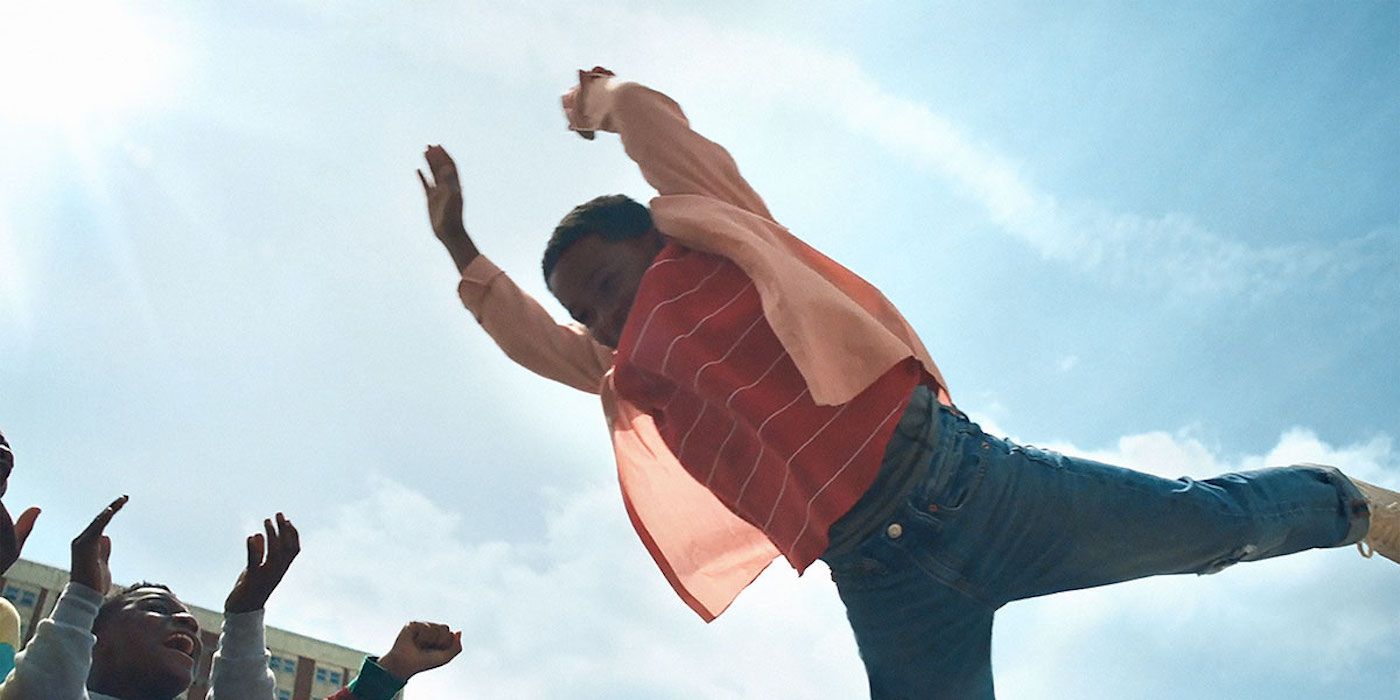Summary
- "We Grown Now" is a film that beautifully captures the realistic and joyous lives of people growing up in a dangerous neighborhood.
- The lead performances by Blake Cameron James and Gian Knight Ramirez are absolutely divine, bringing charm and gravitas to their roles.
- Cinematographer Pat Scola turns every shot into a visually stunning dreamscape, blending quality-grade cinema with stylized modern art.
The homes in Cabrini-Green were demolished in 2011. A Chicago neighborhood comprised of both good and bad, what it represented more than anything was the America we made for ourselves. The residents' legacy now lives in the year's most surprising film, We Grown Now. Writer-director Minhal Baig made waves with 2018’s Hala, a teenage drama with a star-turning performance from Geraldine Viswanathan (Miracle Workers). In Baig's latest offering, Jurnee Smollett (Love Craft Country) and Law & Order alum S. Epatha Merkerson are turning in career-best work as well. But it is Baig’s vision that makes We Grown Now sing in a way that is totally incomparable. Every shot, every musical choice, everything that makes a riveting movie is on display and at its very best here.
Malik (Blake Cameron James) and Eric (Gian Knight Ramirez) are best friends. They might be in elementary school, but they live life to the fullest, skipping school to go to museums and searching high and low for the perfect mattress to jump on. However, the uptick in police presence after a devastating local crime forces Malik’s mom Dolores (Smollett) to reevaluate her family’s situation. Malik doesn’t take the surrounding dangers seriously enough and Eric probably takes the world too seriously. As their ideas clash, the two friends must reconcile what it means to call their home a home.
The portrait of life depicted in We Grown Now is neither a naive fantasy nor a gluttonous vision of poverty. It breathes with an ease that brings us into something very realistic but rarely put to film. The story of people growing up in a dangerous neighborhood is just a backdrop, and what filmmakers choose to put on that stage is what determines how much of their stories are dictated by these circumstances. Baig makes a deliberate effort to stress that these people exist within that setting but have lives filled with joy and wonder. The residents of Cabrini-Green knew life was kicking them in the butt, but they kicked right back.
The lead performances are absolutely divine. James (The Sound Of Christmas) has an effervescence that truly brings joy to the spirit of the film and Ramirez might have more gravitas than any young actor in Hollywood right now. As dramatic acting goes, Ramirez has less screen time but has to convey more adult themes. By the end of the film, audiences will be left in tears by his portrayal. James is a ball of energy that keeps gaining momentum until his whole world changes, and he is left to balance his happiness and his reality. Together they are so charming, and Smollett and Merkerson feel like their equals in every scene. Baig simultaneously puts them in positions to succeed and lets them fly even when they might not be ready.
Cinematographer Pat Scola (Pig) turns every shot into a dreamscape. His form in the film is a perfect blend of quality-grade cinema and the stylized work of modern art. Slow motion B-roll of Black people from high angles can be found in everything from Moonlight to 21 Savage music videos and Scola seems to have an appreciation for both. If you walked in on a random scene from We Grown Now, you would need no context to appreciate it in all its glory.
Cabrini-Green has been featured in recent films like 2019’s Candyman and a cynical reading of We Grown Now might be a “happier Florida Project.” But Baig transforms the horror of poverty and violence into a reality human beings can still thrive in, and even leave if they so choose. Baig has been very open in interviews about how she grew up in Chicago, not Cabrini-Green, and it was something she heard about but didn’t see. By the time she came back to her hometown, the towers were demolished, and her own family home was on the verge of being sold.
There are a number of Black-centered films by non-Black directors that misunderstand or fetishize the people at the center, but Baig is not one of them. She genuinely set out to make a movie about a place — it just so happens that all the people there are Black. Her respect and reverence for that place are as natural as her caring for the images she puts onscreen. Martin Scorsese, David Fincher, and a handful of other filmmakers have yet to release their latest work to wider audiences, but until proven otherwise, We Grown Now is one of the best films of the year.
We Grown Now screened at the 2023 Toronto International Film Festival. The film is 93 minutes long and not rated.



